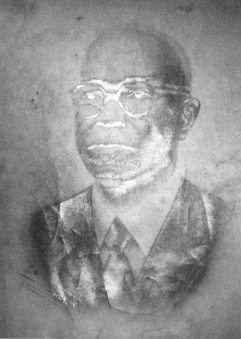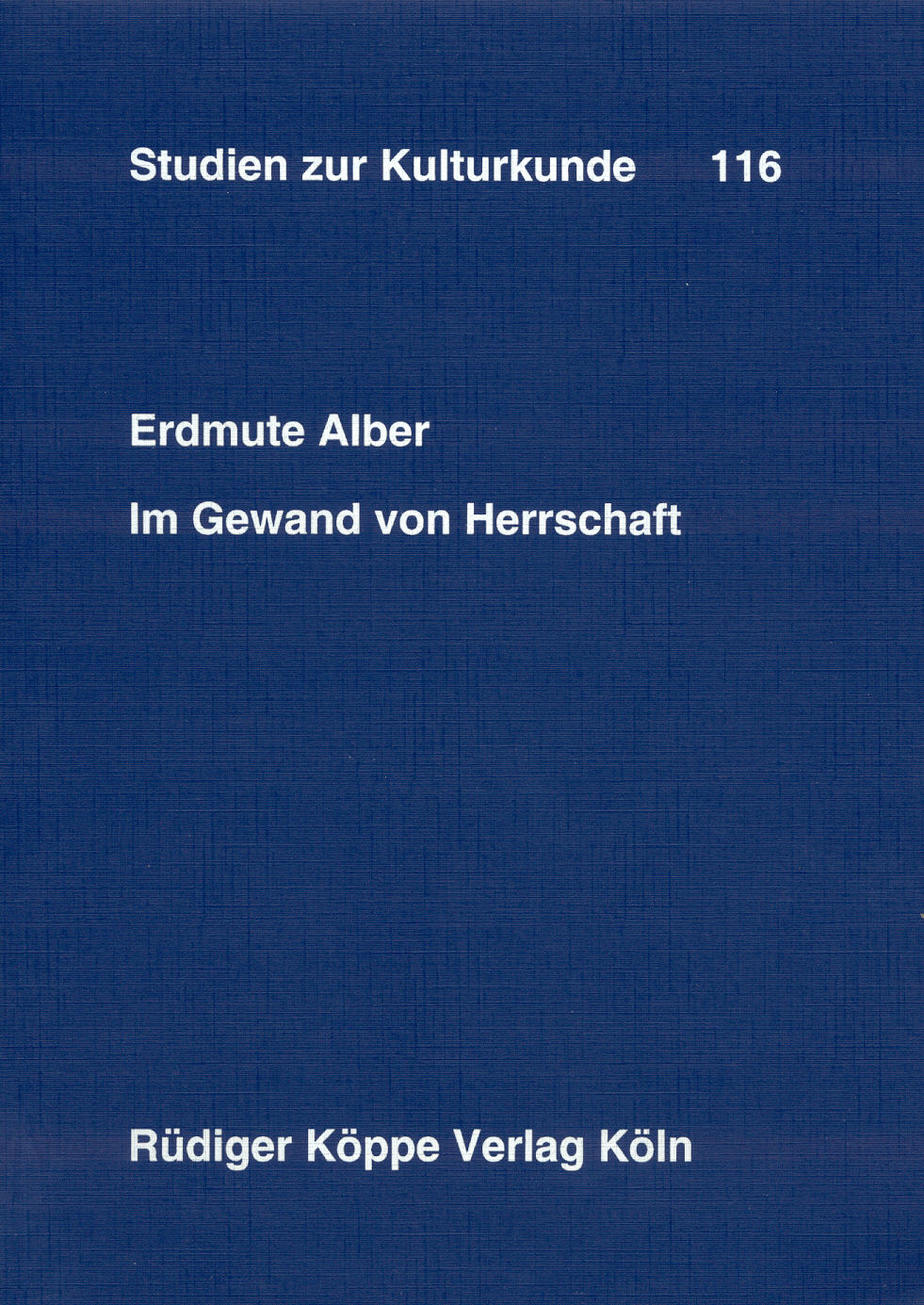

Im Gewand von Herrschaft
Modalitäten der Macht im Borgou (Nord-Bénin) 1900–1995
Author: Erdmute Alber. Series edited by: Beatrix Heintze, Karl-Heinz Kohl.
Series: SzK Studien zur Kulturkunde Volume 116
2000325 pp.
4 maps, 6 photos, 3 graphs, 4 facsimile reproductions, 2 tables
Text language(s): German
E-book
€ 49.80
Buy 'Im Gewand von Herrschaft' as a downloadable PDF document directly from our online shop »
This ethno-historical study analyses the concepts of power and dominance within the apparent forms encountered and the historical processes involved. The basis used to exemplify the wider implications is the development of the institution of chieftain among the Baatombu of Bénin from precolonial times in the late 19th century, through the transformations during the French colonial era and up to its present form. The Baatombu of Bénin number approximately 425,000 people. Most of them live in the département Borgou in northern Bénin, where they constitute the dominant ethnic group with about 45% of the population.
The first part of the book deals with types of power in pre-colonial Borgou. The warlords of the Baatombu monopolised military power and profited by extorting bribes from and raiding trade on the long distance trade routes. Their dominance was dependent on their effective military control in the region as well as their ability to redistribute the spoils of their raids.
The second part details the manifestation of rule in colonial Borgou, where the pre-colonial warlords were slowly integrated into a territorially structured administrative system as subordinate chieftains. It was this integrative process which brought about the establishment of rule based on territory. Rule in this context is defined as a specialised form of power governed by specific criteria of institutionalisation (depersonalisation, formalisation and territorialisation).
The last part uses the specific situation in the Baatombu village of Tebo to illustrate the impact of national political and administrative transformation processes on local society and local understanding of power.
Under these links you will find descriptions of further Beninese cultures and languages:
Accompanying material:
- 50 Jahre Unabhängigkeit in Afrika
(ISBN 978-3-89645-829-2 ) - A Journey to Gods and Comrades
(ISBN 978-3-89645-414-0 ) - Arbeit, Sklaverei und Erinnerung
(ISBN 978-3-89645-349-5 ) - Auf dem Boden der Tatsachen
(ISBN 978-3-89645-828-5 ) - Dezentralisierung, Demokratisierung und die lokale Repräsentation des Staates / Décentralisation, démocratisation, et les représentations locales de la force publique
(ISBN 978-3-89645-306-8 ) - Entwicklungsmakler, Kleinunternehmer, Dienstleister?
(ISBN 978-3-89645-823-0 ) - Être enseignant au Bénin
(ISBN 978-3-89645-835-3 ) - Faire la magistrature au Bénin
(ISBN 978-3-89645-847-6 ) - L’Islam béninois à la croisée des chemins
(ISBN 978-3-89645-817-9 ) - The NGOisation of Education
(ISBN 978-3-89645-831-5 ) - Verbal Art of the Fon (Benin)
(ISBN 978-3-89645-288-7 )
Cross-reference:
- L’expression de la qualification en naténi (langue gur au Bénin)
(ISBN 978-3-89645-118-7 ) - Le Maxi du Centre-Bénin et du Centre-Togo
(ISBN 978-3-89645-031-9 ) - Le Proto-Oti-Volta-Oriental
(ISBN 978-3-89645-116-3 ) - Les emprunts linguistiques d’origine européenne en Fon (Nouveau Kwa, Gbe: Bénin)
(ISBN 978-3-89645-036-4 ) - Lexique Dendi (Songhay)
(ISBN 978-3-927620-45-2 ) - Vodun Stories of the Fon (Benin)
(ISBN 978-3-89645-734-9 )
Reviews
Die Arbeit von A. verdeutlicht wie kaum eine andere in diesem inzwischen recht beliebten Genre, wie nützlich die Mikroanalyse von Machtprozessen und -verhältnissen auf der lokalen Ebene für das Verständnis nicht nur von afrikanischer Politik, sondern von Machtstrukturen überhaupt sein kann. Ihr großer Vorzug liegt in der expliziten und reflektierten Nutzung eines allgemeinsoziologischen Theorie- und Begriffsapparats, die ihr im Gegensatz zu vielen anderen Studien dieser Art Vergleichbarkeit und über den Einzelfall hinausgehende Bedeutsamkeit verleiht.
Gerhard Hauck in Peripherie, 81/82 (2001), 211-213
Jörn Sommer in Anthropos, 96/2001, 606-607
PDF documents:
 | Introduction | (≈ 4 MB) |
| « back | Print version | [top] |
 Books
Books Audio
Audio Biographies
Biographies Series
Series Festschrifts
Festschrifts Journals
Journals